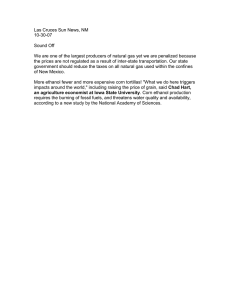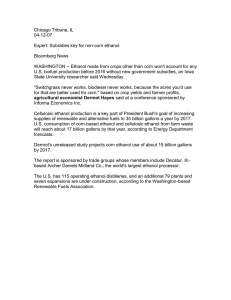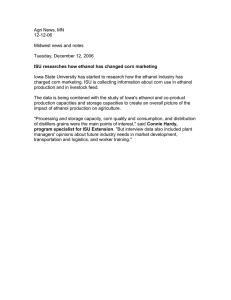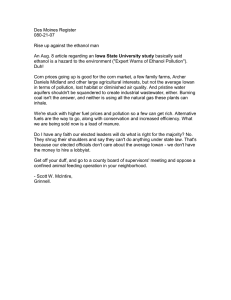Pittsburgh Tribune-Review, PA 09-19-07 Corn and pork
advertisement
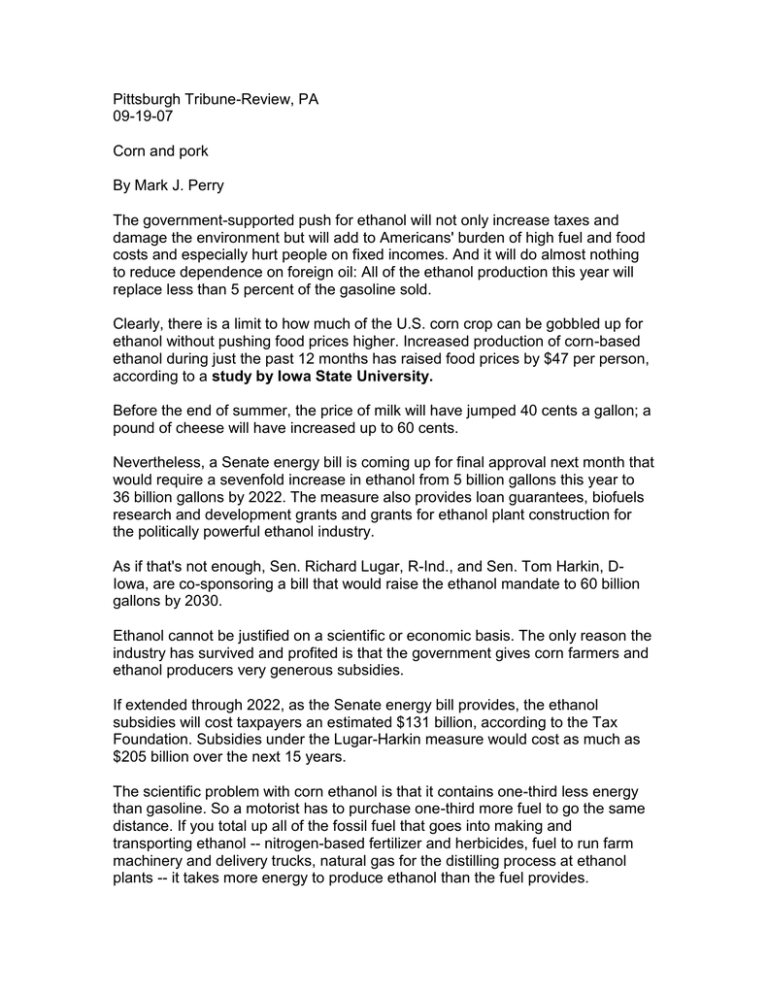
Pittsburgh Tribune-Review, PA 09-19-07 Corn and pork By Mark J. Perry The government-supported push for ethanol will not only increase taxes and damage the environment but will add to Americans' burden of high fuel and food costs and especially hurt people on fixed incomes. And it will do almost nothing to reduce dependence on foreign oil: All of the ethanol production this year will replace less than 5 percent of the gasoline sold. Clearly, there is a limit to how much of the U.S. corn crop can be gobbled up for ethanol without pushing food prices higher. Increased production of corn-based ethanol during just the past 12 months has raised food prices by $47 per person, according to a study by Iowa State University. Before the end of summer, the price of milk will have jumped 40 cents a gallon; a pound of cheese will have increased up to 60 cents. Nevertheless, a Senate energy bill is coming up for final approval next month that would require a sevenfold increase in ethanol from 5 billion gallons this year to 36 billion gallons by 2022. The measure also provides loan guarantees, biofuels research and development grants and grants for ethanol plant construction for the politically powerful ethanol industry. As if that's not enough, Sen. Richard Lugar, R-Ind., and Sen. Tom Harkin, DIowa, are co-sponsoring a bill that would raise the ethanol mandate to 60 billion gallons by 2030. Ethanol cannot be justified on a scientific or economic basis. The only reason the industry has survived and profited is that the government gives corn farmers and ethanol producers very generous subsidies. If extended through 2022, as the Senate energy bill provides, the ethanol subsidies will cost taxpayers an estimated $131 billion, according to the Tax Foundation. Subsidies under the Lugar-Harkin measure would cost as much as $205 billion over the next 15 years. The scientific problem with corn ethanol is that it contains one-third less energy than gasoline. So a motorist has to purchase one-third more fuel to go the same distance. If you total up all of the fossil fuel that goes into making and transporting ethanol -- nitrogen-based fertilizer and herbicides, fuel to run farm machinery and delivery trucks, natural gas for the distilling process at ethanol plants -- it takes more energy to produce ethanol than the fuel provides. The U.S. has an estimated 131 billion barrels of oil and 1,000 trillion cubic feet of natural gas available domestically, but currently off limits, in and around the U.S. If Congress wants to moderate fuel prices and help consumers and the economy, it ought to open up these potentially oil-rich areas off the Atlantic and Pacific coasts, and in Alaska, to oil and natural gas production. Congress must say no to the ethanol hustlers and end their political addiction to corn. Mark J. Perry is a professor of finance and economics at the Flint campus of the University of Michigan.
